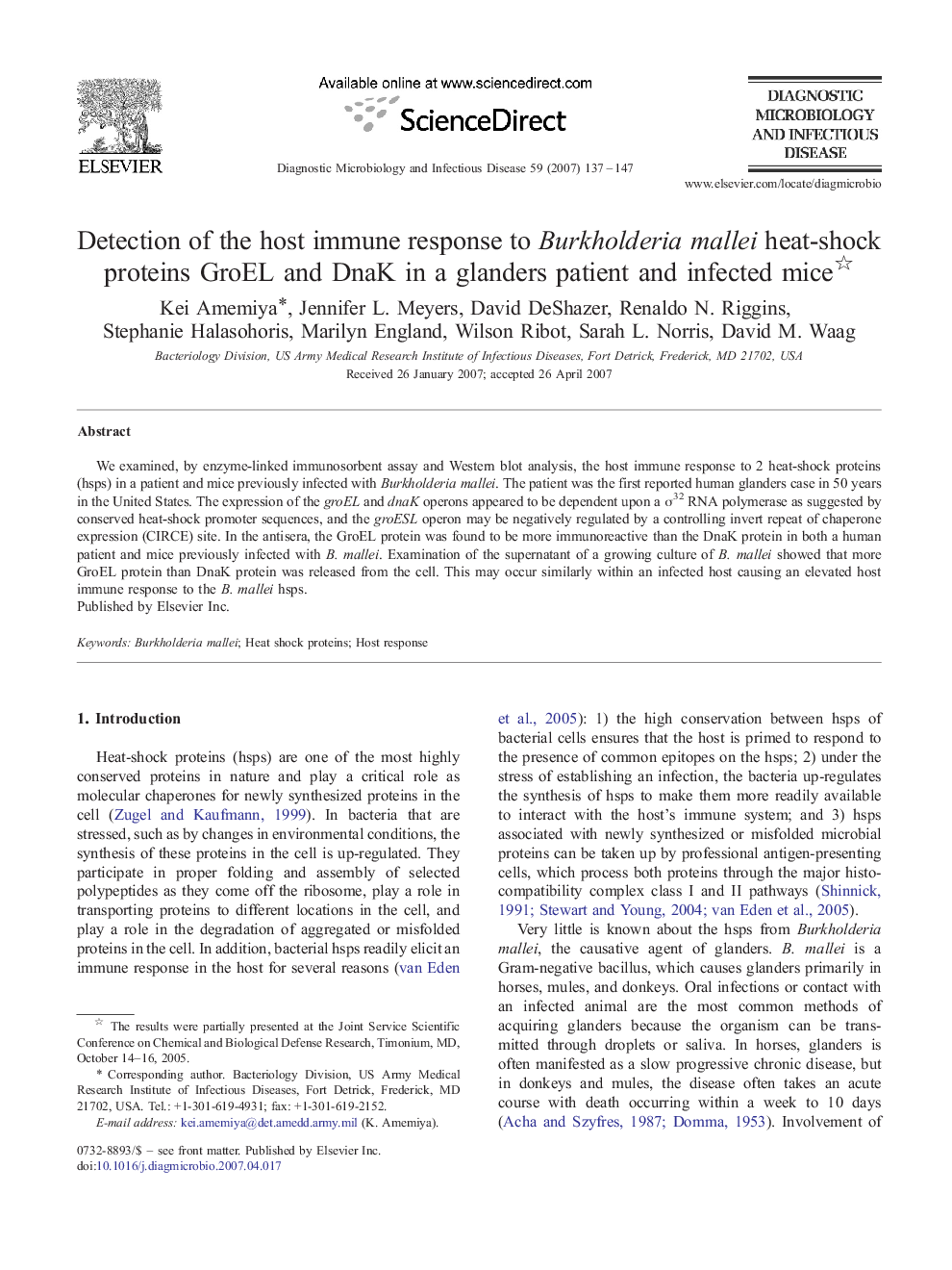| Article ID | Journal | Published Year | Pages | File Type |
|---|---|---|---|---|
| 3348280 | Diagnostic Microbiology and Infectious Disease | 2007 | 11 Pages |
Abstract
We examined, by enzyme-linked immunosorbent assay and Western blot analysis, the host immune response to 2 heat-shock proteins (hsps) in a patient and mice previously infected with Burkholderia mallei. The patient was the first reported human glanders case in 50 years in the United States. The expression of the groEL and dnaK operons appeared to be dependent upon a Ï32 RNA polymerase as suggested by conserved heat-shock promoter sequences, and the groESL operon may be negatively regulated by a controlling invert repeat of chaperone expression (CIRCE) site. In the antisera, the GroEL protein was found to be more immunoreactive than the DnaK protein in both a human patient and mice previously infected with B. mallei. Examination of the supernatant of a growing culture of B. mallei showed that more GroEL protein than DnaK protein was released from the cell. This may occur similarly within an infected host causing an elevated host immune response to the B. mallei hsps.
Related Topics
Life Sciences
Immunology and Microbiology
Applied Microbiology and Biotechnology
Authors
Kei Amemiya, Jennifer L. Meyers, David DeShazer, Renaldo N. Riggins, Stephanie Halasohoris, Marilyn England, Wilson Ribot, Sarah L. Norris, David M. Waag,
